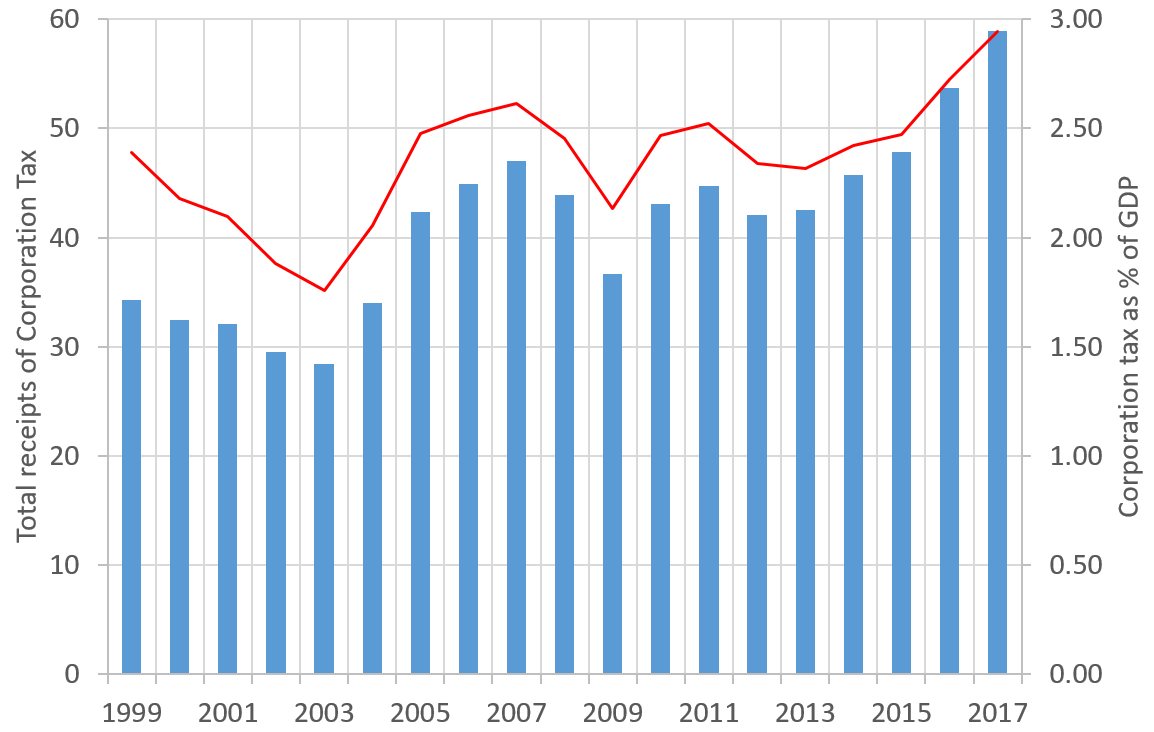|
Independent Commission On Funding And Finance For Wales
The Independent Commission on Funding and Finance for Wales, also known as The Holtham Commission, was established by Rhodri Morgan (First Minister for Wales), Ieuan Wyn Jones (Deputy First Minister for Wales) and Andrew Davies (Minister for Finance and Public Service Delivery), of the Welsh Assembly Government. The establishment of the Commission was a commitment in the One Wales coalition agreement between Labour and Plaid Cymru in June 2007. Based in Cathays Park, Cardiff, the Commission completed its work in July 2010, publishing its findings in a final report: ''Fairness and accountability: a new funding settlement for Wales''. Remit The remit of the Commission was to look at the pros and cons of the present formula-based approach to the distribution of public expenditure resources to the Welsh Assembly Government; and identify possible alternative funding mechanisms including the scope for the Welsh Assembly Government to have tax varying powers as well as greater power ... [...More Info...] [...Related Items...] OR: [Wikipedia] [Google] [Baidu] |
Rhodri Morgan
Hywel Rhodri Morgan (29 September 1939 – 17 May 2017) was a Welsh Labour politician who was the First Minister of Wales and the Leader of Welsh Labour from 2000 to 2009. He was also the Assembly Member for Cardiff West from 1999 to 2011 and the Member of Parliament for Cardiff West from 1987 to 2001. He was, , the longest-serving First Minister of Wales. He was Chancellor of Swansea University from 2011 to 2017. Early life and education Born in Cardiff, Hywel Rhodri Morgan was the son of Professor T. J. Morgan and the brother of historian Prys Morgan. His second cousin is Professor Garel Rhys. Morgan was educated at Whitchurch Grammar School (which merged with Whitchurch County Secondary School to become the comprehensive Whitchurch High School in 1968) in Whitchurch, Cardiff; St John's College, Oxford, graduating with a degree in PPE in 1961; and Harvard University, where he gained an MA in Government in 1963. Career Early career Before entering politics, Morgan worke ... [...More Info...] [...Related Items...] OR: [Wikipedia] [Google] [Baidu] |
Barnett Formula
The Barnett formula is a mechanism used by the Treasury in the United Kingdom to automatically adjust the amounts of public expenditure allocated to Northern Ireland, Scotland and Wales to reflect changes in spending levels allocated to public services in England, Scotland and Wales, as appropriate. The formula applies to a large proportion, but not the whole, of the devolved governments' budgets − in 2013–14 it applied to about 85% of the Scottish Parliament's total budget.Barnett Formula definition in Scottish Draft Budget 2013–14 ''www.scotland.gov.uk'' The formula is named after Joel Barnett, who devised it in 1978 while |
Capital Expenditure
Capital expenditure or capital expense (capex or CAPEX) is the money an organization or corporate entity spends to buy, maintain, or improve its fixed assets, such as buildings, vehicles, equipment, or land. It is considered a capital expenditure when the asset is newly purchased or when money is used towards extending the useful life of an existing asset, such as repairing the roof. Capital expenditures contrast with operating expenses (opex), which are ongoing expenses that are inherent to the operation of the asset. Opex includes items like electricity or cleaning. The difference between opex and capex may not be immediately obvious for some expenses; for instance, repaving the parking lot may be thought of inherent to the operation of a shopping mall. The dividing line for items like these is that the expense is considered capex if the financial benefit of the expenditure extends beyond the current fiscal year. Usage Capital expenditures are the funds used to acquire or upgra ... [...More Info...] [...Related Items...] OR: [Wikipedia] [Google] [Baidu] |
Government Debt
A country's gross government debt (also called public debt, or sovereign debt) is the financial liabilities of the government sector. Changes in government debt over time reflect primarily borrowing due to past government deficits. A deficit occurs when a government's expenditures exceed revenues. Government debt may be owed to domestic residents, as well as to foreign residents. If owed to foreign residents, that quantity is included in the country's external debt. In 2020, the value of government debt worldwide was $87.4 US trillion, or 99% measured as a share of gross domestic product (GDP). Government debt accounted for almost 40% of all debt (which includes corporate and household debt), the highest share since the 1960s. The rise in government debt since 2007 is largely attributable to the global financial crisis of 2007–2008, and the COVID-19 pandemic. The ability of government to issue debt has been central to state formation and to state building. Public debt ... [...More Info...] [...Related Items...] OR: [Wikipedia] [Google] [Baidu] |
Construction Aggregate
Construction aggregate, or simply aggregate, is a broad category of coarse- to medium-grained particulate material used in construction, including sand, gravel, crushed stone, slag, recycled concrete and geosynthetic aggregates. Aggregates are the most mined materials in the world. Aggregates are a component of composite materials such as concrete and asphalt; the aggregate serves as reinforcement to add strength to the overall composite material. Due to the relatively high hydraulic conductivity value as compared to most soils, aggregates are widely used in drainage applications such as foundation and French drains, septic drain fields, retaining wall drains, and roadside edge drains. Aggregates are also used as base material under foundations, roads, and railroads. In other words, aggregates are used as a stable foundation or road/rail base with predictable, uniform properties (e.g. to help prevent differential settling under the road or building), or as a low-cost exten ... [...More Info...] [...Related Items...] OR: [Wikipedia] [Google] [Baidu] |
Air Passenger Duty
Air Passenger Duty (APD) is an excise Duty (tax), duty which is charged on the carriage of passengers flying from a United Kingdom or Isle of Man airport on an aircraft that has an authorised take-off weight of more than 5.7 tonnes or more than twenty seats for passengers. The duty is not payable by inbound international passengers who are bookedNotice 550 Section 4.1 HMRC to continue their journey (to an international destination) within 24 hours of their scheduled time of arrival in the UK. (The same exemption applies to booked onward domestic flights, but the time limits are shorter and more complex.) If a passenger "stops-over" for more than 24 hours (or the domestic limit, if applicable), duty is p ... [...More Info...] [...Related Items...] OR: [Wikipedia] [Google] [Baidu] |
Vacation Property
A holiday cottage, holiday home, vacation home, or vacation property is accommodation used for holiday vacations, corporate travel, and temporary housing often for less than 30 days. Such properties are typically small homes, such as cottages, that travelers can rent and enjoy as if it were their own home for the duration of their stay. The properties may be owned by those using them for a vacation, in which case the term second home applies; or may be rented out to holidaymakers through an agency. Terminology varies among countries. In the United Kingdom this type of property is usually termed a ''holiday home'' or ''holiday cottage''; in Australia, a ''holiday house/home'', or ''weekender''; in New Zealand, a ''bach'' or ''crib''. Characteristics and advantages Today's global short-term vacation property rental market is estimated to be worth $100 billion. The holiday cottage market in both Canada and the UK is highly competitive – and big business. Numbers Unite ... [...More Info...] [...Related Items...] OR: [Wikipedia] [Google] [Baidu] |
Council Tax
Council Tax is a local taxation system used in England, Scotland and Wales. It is a tax on domestic property, which was introduced in 1993 by the Local Government Finance Act 1992, replacing the short-lived Community Charge The Community Charge, commonly known as the poll tax, was a system of taxation introduced by Margaret Thatcher's government in replacement of domestic rates in Scotland from 1989, prior to its introduction in England and Wales from 1990. It pr ..., which in turn replaced the domestic rates. Each property is assigned one of eight bands in England and Scotland (A to H), or nine bands in Wales (A to I), based on property value, and the tax is set as a fixed amount for each band. The more valuable the property, the higher the tax, except for properties valued above £320,000 (in 1991 prices). Some property is exempt from the tax, and some people are exempt from the tax, while some get a discount. In 2011, the average annual levy on a property in England was ... [...More Info...] [...Related Items...] OR: [Wikipedia] [Google] [Baidu] |
Capital Gains Tax
A capital gains tax (CGT) is the tax on profits realized on the sale of a non-inventory asset. The most common capital gains are realized from the sale of stocks, Bond (finance), bonds, precious metals, real estate, and property. Not all countries impose a capital gains tax and most have different rates of taxation for individuals versus corporations. Countries that do not impose a capital gains tax include Bahrain, Barbados, Belize, Cayman Islands, Isle of Man, Jamaica, New Zealand, Sri Lanka, Singapore, and others. In some countries, such as New Zealand and Singapore, professional traders and those who trade frequently are taxed on such profits as a business income. In Sweden, the Investment Savings Account (ISK – ''Investeringssparkonto'') was introduced in 2012 in response to a decision by Parliament to stimulate saving in funds and equities. There is no tax on capital gains in ISKs; instead, the saver pays an annual standard low rate of tax. Fund savers nowadays mainly ch ... [...More Info...] [...Related Items...] OR: [Wikipedia] [Google] [Baidu] |
Stamp Duty In The United Kingdom
Stamp duty in the United Kingdom is a form of tax charged on legal instruments (written documents), and historically required a physical stamp to be attached to or impressed upon the document in question. The more modern versions of the tax no longer require a physical stamp. History of UK stamp duties Stamp duty was first introduced in England on 28 June 1694, during the reign of William III and Mary II, under "An act for granting to their Majesties several duties upon vellum, parchment and paper, for four years, towards carrying on the war against France". Dagnall, H. (1994) ''Creating a Good Impression: three hundred years of The Stamp Office and stamp duties.'' London: HMSO, p. 3. In the 1702/03 financial year 3,932,933 stamps were embossed in England for a total value of £91,206.10s.4d. Stamp duty was so successful that it continues to this day through a series of Stamp Acts. Similar duties have been levied in the Netherlands, France and elsewhere. During the 18th a ... [...More Info...] [...Related Items...] OR: [Wikipedia] [Google] [Baidu] |
United Kingdom Corporation Tax
: ''Throughout this article, the term "pound" and the £ symbol refer to the Pound sterling.'' Corporation tax in the United Kingdom is a corporate tax levied in on the profits made by UK-resident companies and on the profits of entities registered overseas with permanent establishments in the UK. Until 1 April 1965, companies were taxed at the same income tax rates as individual taxpayers, with an additional profits tax levied on companies. Finance Act 1965 replaced this structure for companies and associations with a single corporate tax, which took its basic structure and rules from the income tax system. Since 1997, the UK's Tax Law Rewrite ProjectTax Law Rewrite , |




